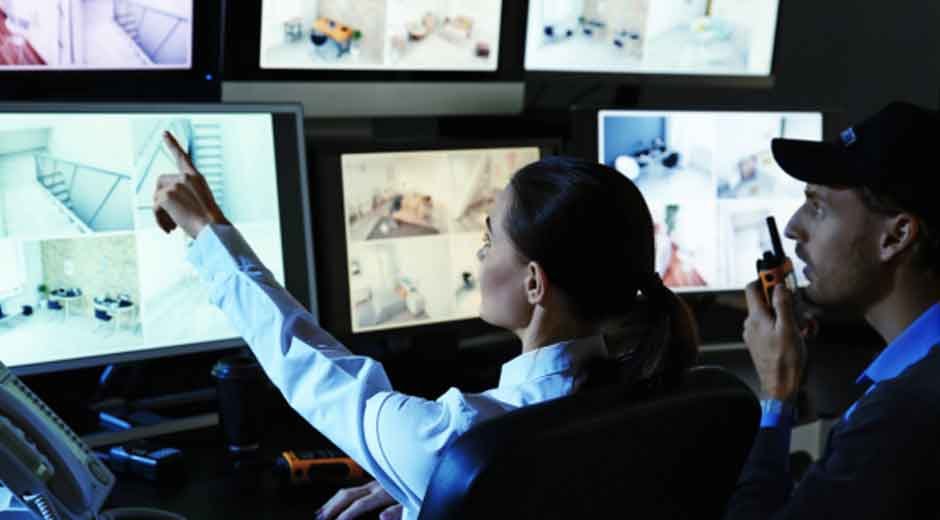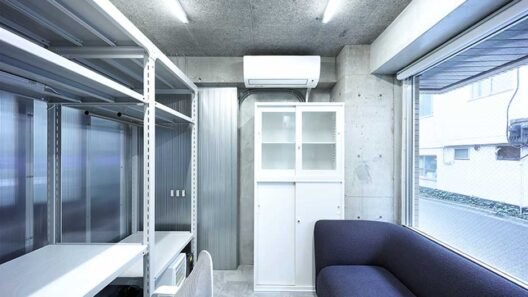Here’s something nobody tells you when you start a business: everything you’ve built can vanish in one bad night. Theft, vandalism, fraudulent injury claims, they’re not theoretical risks. They’re real threats that chip away at your margins and keep you up at night.
But there’s good news. Commercial security cameras have gotten ridiculously good and surprisingly affordable. We’re talking about tech that actually pays for itself, lower insurance premiums, less shrinkage, and insights into how your operation really runs when you’re not looking.
Why Your Small Business Needs Professional Protection
The Growing Threat to Small Businesses
American small businesses hemorrhage billions to theft every year. Think your quiet neighborhood is immune? The data says otherwise. In Q1 2025, IDC reports global smart camera shipments hit 338.66 million units, up 4.6% year-over-year from 2024. That’s not paranoia, it’s businesses waking up to reality.
Small business security solutions worth their salt do way more than record grainy footage. They watch in real-time, make criminals think twice, and document everything. Talk to owners who’ve invested properly, and you’ll hear the same story: it paid for itself faster than expected.
How Modern Systems Protect Your Bottom Line
The right cameras stop theft, sure. But they also settle those he-said-she-said customer disputes, track whether your team is actually following safety protocols, and reveal bottlenecks you never noticed. Companies running top commercial security cameras see immediate returns, fewer bogus slip-and-fall claims, caught internal theft, and visibility into what’s actually happening.
Your phone becomes your command center. Motion after closing? You get pinged instantly. The footage is sharp enough that police can actually use it in court. Some setups sync with your POS system, matching every transaction to video. Internal theft doesn’t stand a chance.
Beyond Basic Surveillance
Consumer-grade stuff can’t touch what professional cameras deliver. Weatherproof builds that laugh at brutal winters. Night vision that captures faces in total darkness. AI that knows the difference between a person and a raccoon knocking over trash. These aren’t bells and whistles; they’re must-haves if you operate outside banker’s hours.
So which setup fits your situation? Let’s break down whether you need wired, wireless, or something in between.
Critical Features Every Small Business Security Solution Must Have
High-Resolution Video Quality You Can Actually Use
Blurry footage is worthless footage. Period. The best security cameras for small businesses now ship with 4K standard, catching details that 1080p misses completely. When the cops come asking, you want video that actually helps.
Here’s another thing: digital zoom works on high-res footage without turning into a pixelated mess. That’s solved countless cases where the action happened at the frame’s edge.
AI-Powered Detection That Cuts Through the Noise
Zero people have time to review eight hours of shadows dancing across empty parking lots. Modern AI filters out garbage, alerting you only when actual humans or vehicles show up where they shouldn’t. This tech has exploded; 74% of security developers now focus heavily on AI.
Smart detection means you avoid alert fatigue while catching genuine threats. Advanced systems even recognize specific people, hooking into access control automatically.
Weather Resistance and Remote Access
Outdoor cameras need at least an IP66 rating to survive actual weather. Cheap models die within months outside, but professional security camera systems keep running for years through everything Mother Nature throws at them.
Remote access? Non-negotiable in 2024. Check your cameras from anywhere, phone, laptop, tablet. Cloud storage protects footage even if someone steals your DVR or it dies.
Now let’s look at five specific systems that deliver real protection across different budgets and needs.
Top 5 Commercial Security Cameras for Small Business Protection
#1. Axis Communications P3375-VE – Best Overall Commercial System
This dome camera hits 2MP resolution with stellar low-light performance and construction that shrugs off any weather. Remote zoom and focus eliminate installation headaches while guaranteeing perfect framing. It plays nicely with third-party management systems, making expansion painless.
Built-in analytics catch tampering attempts immediately. Installers prefer it because Power over Ethernet simplifies cabling. You’re spending around $600 per camera plus installation, but reliability makes it worthwhile for retail, offices, and warehouses.
#2. Hikvision DS-2CD2143G0-I – Best Budget-Friendly Option
Tight budget? You can still get serious protection. The Hikvision DS-2CD2143G0-I delivers 4MP resolution, 98-foot infrared night vision, and weather resistance for under $200 per camera. Surveillance cameras for businesses rarely offer this much value.
MicroSD backup means footage survives network outages. Wide dynamic range handles tricky lighting like storefronts with huge windows. Startups pick this because it offers pro features without murdering their budget.
#3. Avigilon H5A – Best for Retail Stores
Retail needs specialized features, and this camera delivers. People counting, heat mapping, appearance search, you can track customer patterns, identify rush hours, and search footage for someone wearing a red jacket.
POS integration connects transactions to video, catching cashier theft and return fraud cold. At 5MP resolution, every checkout detail gets captured. Yes, it’s about $800 per camera, but retail ops recover costs fast through loss prevention alone.
#4. Verkada D80 – Best Wireless Solution for Multi-Location Businesses
Managing security across multiple locations becomes stupid simple with Verkada’s cloud platform. The D80 offers 4K resolution, hybrid cloud storage, and cellular backup that keeps recording during internet outages. One dashboard controls everything, perfect for franchises.
The camera includes 120dB WDR for challenging light and an almost unheard-of 10-year warranty. At roughly $1,200 per camera plus subscription fees, it’s premium territory. But three-plus locations make centralized management absolutely worth it.
#5. Hanwha Wisenet X Plus – Best Enterprise-Grade System
Growing businesses need systems that scale from five cameras to five hundred without infrastructure replacement. Wisenet X Plus nails this with 4K resolution, advanced analytics, and serious cybersecurity, including secure boot and signed firmware.
Edge-based AI processing slashes bandwidth and storage costs, critical when running dozens of cameras. Expect $700-900 per camera, but you’re buying infrastructure that grows with you. The open platform works with virtually any VMS software, protecting your investment long-term.
This comparison should help you match specific requirements to the right system quickly.
Choosing the Right Security Camera System for Your Needs
Understanding Your Specific Requirements
Your security challenges are unique. Retail needs cameras on registers and fitting rooms. Warehouses prioritize loading docks and inventory zones. Walk your property and spot vulnerabilities: entries, blind corners, parking lots, anywhere valuable stuff sits.
Think about recording needs, too. Some industries need 30-day retention for liability protection. Others handle a week fine. Storage needs explode fast with 4K cameras running 24/7, so plan accordingly.
Budget Planning Beyond the Sticker Price
Camera prices are just the entrance fee. Professional installation runs $100-200 per camera, depending on complexity. Monthly cloud storage hits $5-30 per camera. Older network infrastructure might need upgrades for multiple 4K streams.
Factor in ongoing costs: maintenance, firmware updates, and eventual replacements. Quality commercial security cameras last 5-7 years with proper care, so calculate total ownership cost over that span. Spending more upfront on reliable gear typically saves money through fewer failures and support headaches.
Making the right investment requires evaluating your unique needs, budget reality, and growth plans carefully.
Making Your Commercial Security Investment Count
Installation Best Practices
Even perfect cameras become useless when positioned poorly. Mount them 9-10 feet high for optimal facial capture while staying unreachable. Angle away from windows and doors to avoid backlighting that creates silhouettes instead of clear faces.
Test every view before permanent mounting. Verify zero blind spots where intruders could hide and confirm critical areas like safes and registers are clearly visible. Professional installers know these tricks; DIY attempts often disappoint despite initial savings.
Legal Compliance and Signage
Privacy laws vary by state, but visible signage informing people about recording is usually required. Some states ban audio recording without consent, so understand local regulations before enabling microphones. Employee privacy matters; you generally can’t monitor break rooms or bathrooms.
Consult legal counsel about retention requirements for your sector. Some industries must keep footage for specific periods; others face restrictions on storage duration. Getting this wrong invites lawsuits that dwarf compliance costs.
Understanding advanced features like AI analytics and license plate recognition can transform cameras from simple surveillance into powerful business intelligence tools.
Final Thoughts on Protecting Your Business Investment
Your operation deserves protection that matches what bigger companies take for granted. The best security cameras for small businesses we’ve covered offer solutions for every budget and situation, from budget-friendly options that maintain quality to enterprise-grade systems that scale with you.
Remember that proper security camera systems do more than catch criminals; they slash insurance costs, resolve disputes, prevent liability claims, and provide operational insights, improving your bottom line. Don’t wait until after a break-in to take this seriously. The best moment to protect your business is right now.
Common Questions About Commercial Security Cameras
1. What’s the average cost of a professional security camera system for small businesses?
Budget $1,500-5,000 for a basic 4-8 camera system, including installation. Budget setups start around $1,000, while comprehensive systems with advanced features exceed $10,000. Monthly monitoring and cloud storage add $50-200 ongoing.
2. How many cameras does a typical small business actually need?
Most small businesses need 4-8 cameras minimum covering entrances, exits, and critical zones. Retail averages one camera per 1,000 square feet; offices might need fewer. Your layout and risk factors determine the actual number.
3. Can I install commercial security cameras myself, or should I hire professionals?
Simple wireless systems support DIY installation, but professional installation ensures optimal placement, proper network configuration, and warranty compliance. Professional installation typically costs $100-200 per camera but prevents expensive mistakes and maximizes coverage.













